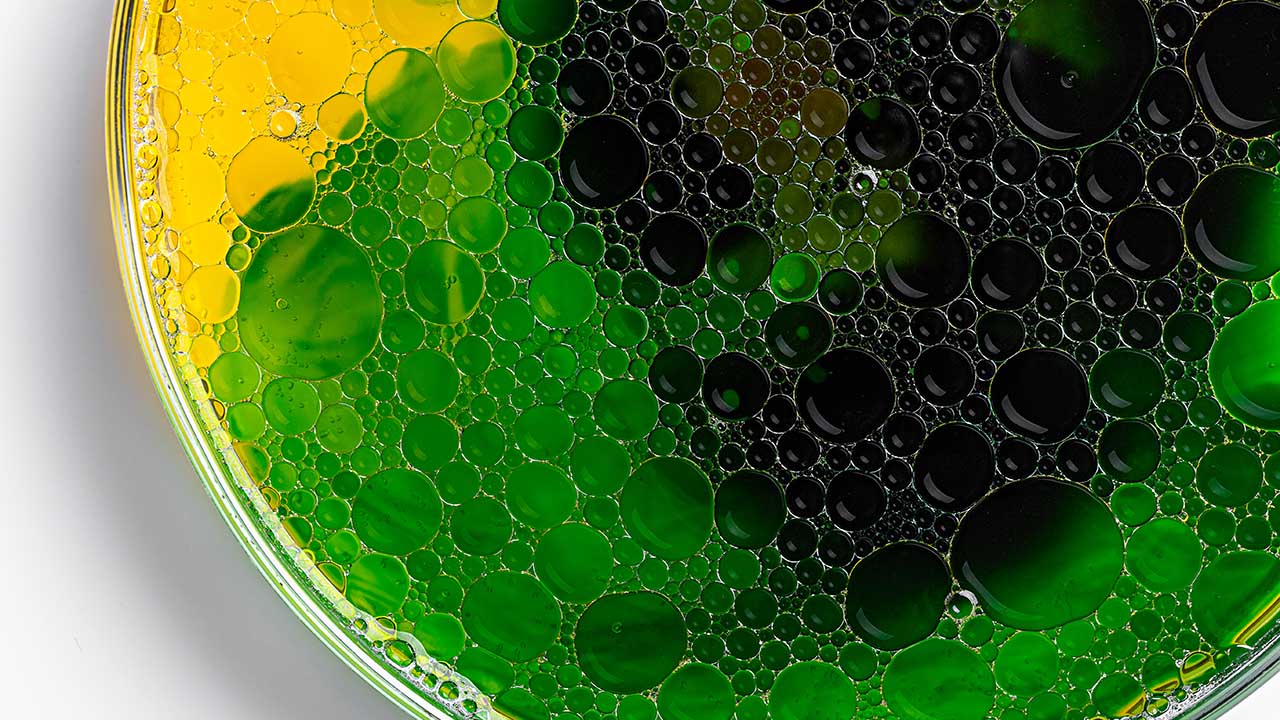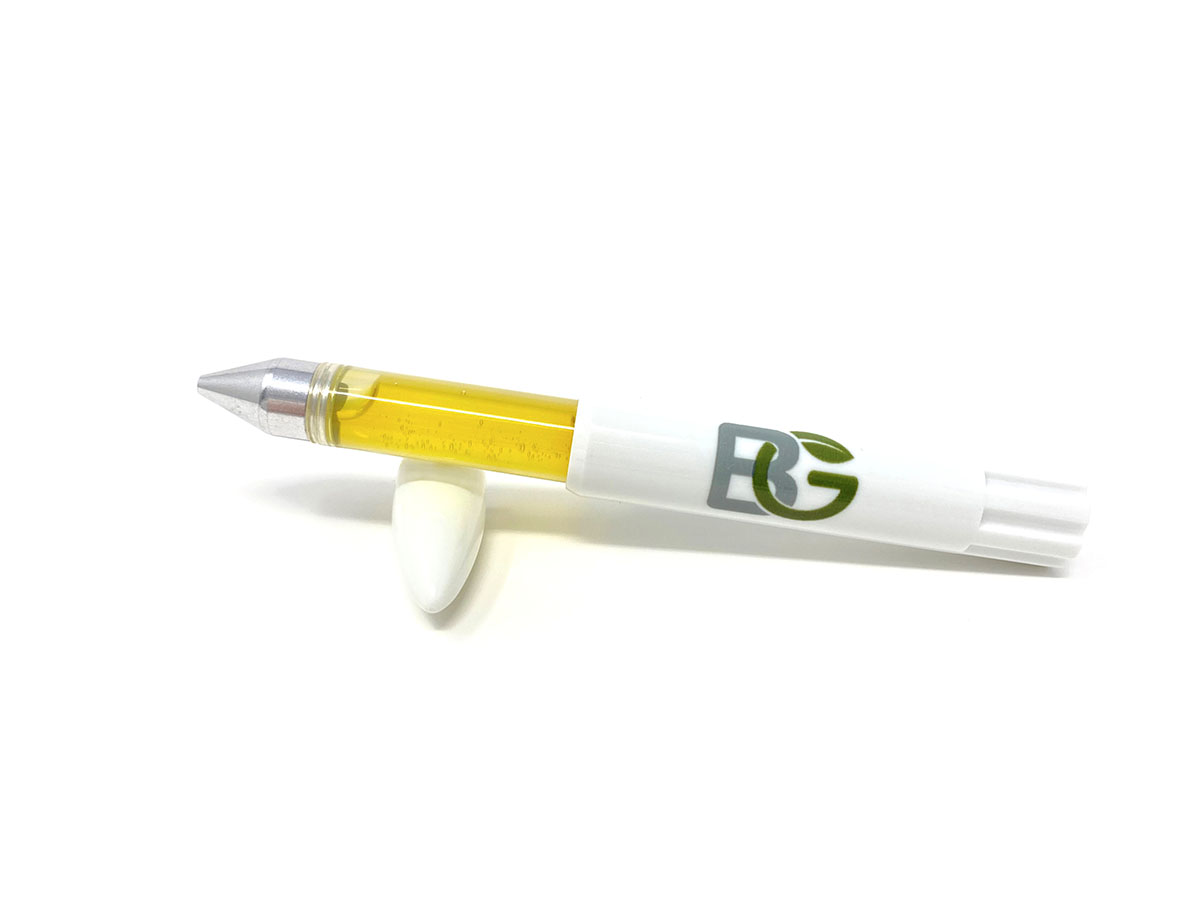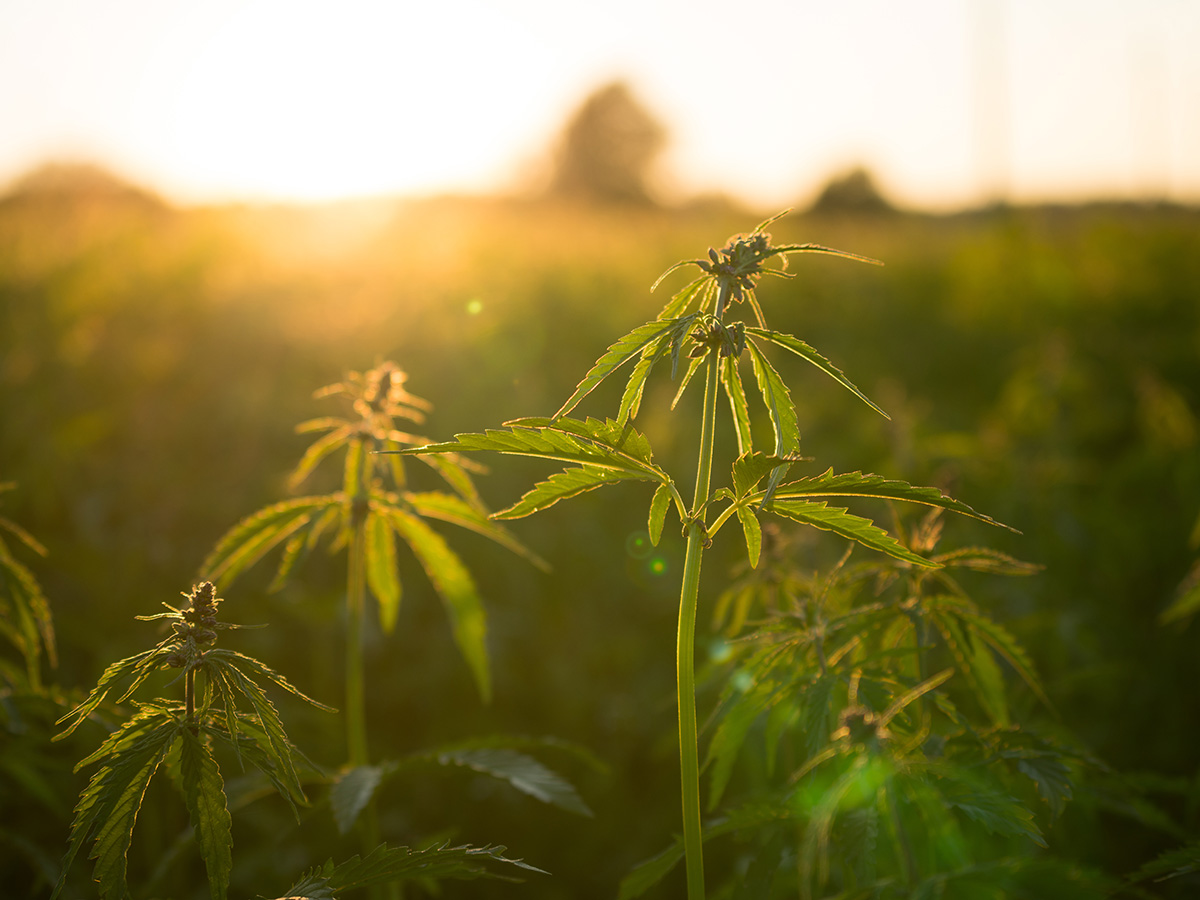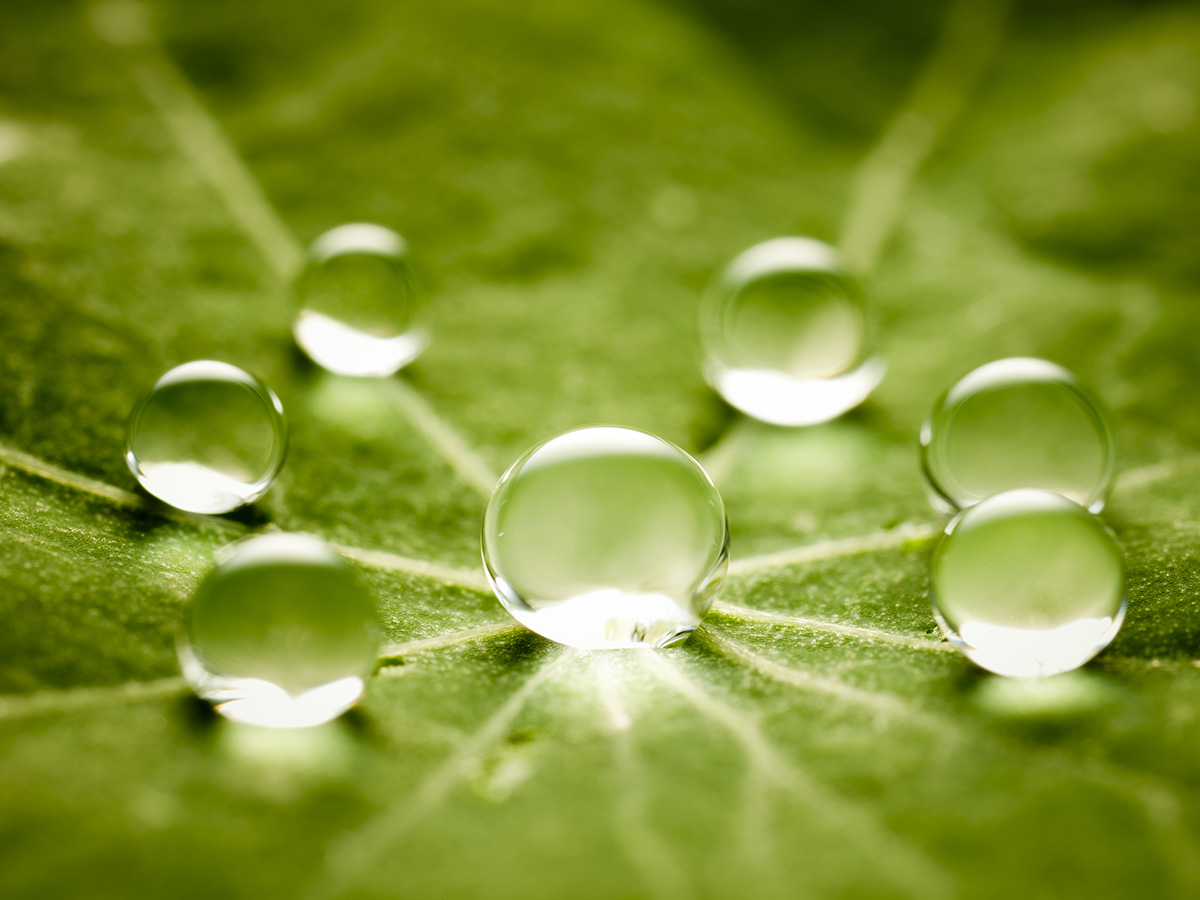
THC Explained: What Is It, How Does It Work, Types, & More
April 04, 2023
Do you know that feeling you get when you consume marijuana? It’s sometimes hard to describe outside of using the slang term “high” or, more acceptably, “intoxicated.” That feeling you get is because of THC, among other cannabinoids. That tiny compound can cause anything from a mild to an intense reaction inside our bodies, throwing our endocannabinoid system out of alignment. To help you better understand this cannabinoid, we’re going to talk about THC and explain what it is, how it works, its different forms, and more.
What is THC?
THC, or delta-9-tetrahydrocannabinol, is the psychoactive cannabinoid in the marijuana flower that creates a feeling of intoxication. When it enters the bloodstream—either through inhalation, ingestion, or other methods—it interacts with our endocannabinoid system, creating a series of responses that lead to the different sensations we experience when consuming different cannabis strains and products.1 In addition to its own effects, THC also works with other cannabinoids and terpenes you consume to create the entourage effect.2
Because of the way THC interacts with the endocannabinoid system, scientists are trying to figure out if THC has any therapeutic benefit to it, too.
How Does THC Work?
No matter how you consume cannabis or cannabis products, the THC and other cannabinoids will eventually reach your bloodstream. During its journey through your body, it encounters your endocannabinoid system. This is a network of endocannabinoids, which are cannabinoids made by your body, and receptors that help keep your body in balance when it experiences a stressor. One of those endocannabinoids is called anandamide, and THC mimics that endocannabinoid’s chemical structure.3
THC, like anandamide, interacts with your CB1 receptors, and unlike anandamide, your CB2 receptors. CB1 receptors are found in the brain and nervous system, CB2 receptors are found throughout your immune system. Because both receptors are affected by the presence of the psychoactive THC cannabinoid, we experience intoxication.3 Researchers are also trying to determine if they can use that connection with such important receptors for therapeutic purposes, but we have no conclusive results at this point.
What are the Uses for THC?
There are two primary uses for THC: recreational and medical. Recreational THC consumption is the enjoyment of marijuana by adults who are at least 21 years old in states where recreational marijuana has been legalized. Medical marijuana THC consumption is for patients who are looking for symptom relief for qualifying conditions, like Alzheimer’s disease, AIDS, chronic pain, and multiple sclerosis.4 The states that have legalized medical marijuana set the registration and qualification terms for patients in their state.
What are the Different Types of THC?
Not all THCs are created equally. In states where cannabis is legal, you can obtain your delta-9 THC, delta-8 THC, THCV, and THCA at any of our locations. There are legal loopholes, however, that allow the purchase of delta-8 THC outside of dispensaries. Here are the differences between these forms of THC:
Delta-9 THC
Delta-9 THC is the THC we all know and love. It’s the psychoactive cannabinoid responsible for the intoxicating effects we expect from marijuana.5 When we talk about THC, we are almost always talking about Delta-9.
Delta-8 THC
Delta-8 is the Diet Coke of Delta-9. It’s still intoxicating, but it’s not quite as potent as delta-9.5 If you purchase cannabis with delta-8 from a dispensary, it comes from the marijuana plant. If you purchase delta-8 THC from outside of a dispensary, it has been harvested from the hemp plant—creating a legal loophole that some lawmakers are actively trying to close or have already closed.6
THCA
THCA, or tetrahydrocannabinolic acid, is the cannabinoid precursor to THC. When marijuana is exposed to light or decarboxylated (heated), the THCA turns into THC. Without THCA, we wouldn’t have THC.7 That may not be its only benefit, however. Researchers have been studying THCA for decades to understand if it has any therapeutic potential. While results have been interesting in animal models, there have been no significant studies or results in humans.
THCV
Tetrahydrocannabivarin, or THCV, is a minor cannabinoid found in nearly untraceable amounts in cannabis. While it does have psychoactive effects, to experience them, you need to consume a large dose of THCV.8 Because cannabis does not contain much THCV naturally, it’s hard to experience it in any significant way.
THC vs CBD: What’s the Difference?
When it comes to cannabinoids, most people know of two—THC and CBD. Though they are both major cannabinoids, there is a difference between CBD and THC, and it ultimately comes down to the effects of each cannabinoid. For example, while THC is psychoactive, CBD is not. Additionally, THC activates the CB1 receptors in your endocannabinoid system. CBD does not.1 Rather, there is some evidence that indicates CBD can block some of THC’s effects while also making the effects last longer.9
Answering FAQs About THC
The more you learn about THC, the more you realize there’s so much more to know. Here are a few questions we get asked about THC on the regular:
What does “THC” stand for?
THC stands for tetrahydrocannabinol.1 When talking about THC, we’re typically talking about delta-9 THC.
How many types of THC molecules are there?
There are four THC types—delta-8, delta-9, THCA, and THCV.10
Where is THC legal?
Because marijuana is not federally regulated, the states can choose to legalize cannabis. In some states, you are allowed to consume medical marijuana provided you have proven you qualify. In others, you can consume both medical and recreational marijuana. There are also states that have not legalized any forms of cannabis.11 It’s important to check the laws in your state before purchasing and consuming marijuana, and you should always purchase from a licensed, trusted dispensary.
Purchasing THC Products
One of the best things about cannabis is that it comes in so many different forms. You can purchase flower and concentrates with cannabinoids and terpenes, or you can opt for edibles or tinctures with only THC in them. Prefer something else? We’ve got even more options. To find your favorite form of THC, view our menu and then visit one of our dispensaries.
Sources:
1. “What is THC (Tetrahydrocannabinol)?” Leafly, August 16, 2022, https://www.leafly.com/news/cannabis-101/what-is-tetrahydrocannabinol
2. “The entourage effect: How cannabis compounds may be working together,” Leafly, August 17, 2022, https://www.leafly.com/news/cannabis-101/cannabis-entourage-effect-why-thc-and-cbd-only-medicines-arent-g
3. “Cannabinoids 101: Here’s Exactly How Cannabis Works in the Body,” GoodRx, December 22, 2023, https://www.goodrx.com/well-being/alternative-treatments/cannabinoids-how-cannabis-works
4. “Medical marijuana,” Mayo Clinic, May 30, 2024, https://www.mayoclinic.org/healthy-lifestyle/consumer-health/in-depth/medical-marijuana/art-20137855
5. “Delta-8 THC vs. Delta-9 THC: What’s The Difference?” Forbes, October 3, 2023, https://www.forbes.com/health/cbd/delta-8-vs-delta-9/
6. “Delta-8 THC is legal in many states, but some want to ban it,” NBC News, June 28, 2021, https://www.nbcnews.com/health/health-news/delta-8-thc-legal-many-states-some-want-ban-it-n1272270
7. “THCA and THC: What's the difference?” Weedmaps, June 20, 2022, https://weedmaps.com/learn/cannabis-and-your-body/difference-between-thca-thc
8. “What is THCV and what are the benefits of this cannabinoid?” Leafly, September 27, 2022, https://www.leafly.com/news/cannabis-101/what-is-thcv-and-what-are-the-benefits-of-this-cannabinoid
9. “Ask a budtender: Does CBD really counteract the effects of THC?” Weedmaps, April 21, 2022, https://weedmaps.com/news/2022/04/does-cbd-counteract-thc/
10. “The Different Types of THC & Their Benefits,” DocMJ, October 12, 2023, https://docmj.com/the-different-types-of-thc-their-benefits/
11. “State Laws,” NORML, https://norml.org/laws/
Use of Marijuana Concentrate may lead to: Psychotic symptoms and/or Psychotic disorder (delusions, hallucinations, or difficulty distinguishing reality); Mental Health Symptoms/Problems; Cannabis Hyperemesis Syndrome (CHS) (uncontrolled and repetitive vomiting); Cannabis use disorder/dependence, including physical and psychological dependence. Please consume responsibly. This product may cause impairment and may be habit forming. There may be health risks associated with consumption of this product. State laws impact what dispensaries can and can’t sell to recreational customers and medical marijuana patients. Not every type of product, consumption method, dosage form, or potency mentioned on this blog will be permitted in all locations.


